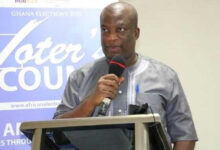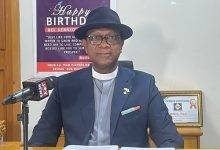The Ghana National Association of the Deaf (GNAD) has called on the Ministry of Finance to give clearance for the employment of sign language interpreters trained by the association to institutions to enable them provide services to the deaf community.
According to the association, teachers posted to schools for the deaf and other institutions do not have sufficient proficiency in the sign language to effectively teach course contents to deaf children.
A statement signed and issued by Juventus Duorinaah, Executive Director, GNAD, in Accra on Monday, said this hinders participation of deaf students in school activities, including access to lectures.
To make matters worse, it said some public universities were still using students as sign language interpreters for deaf students instead of employing qualified interpreters.
The statement was on the occasion of the marking of this year’s International Day of Sign Language (IDSL).
It said GNAD has invested in the training and certifying of Ghanaian sign language interpreters through various projects, including its programme at the University of Cape Coast (UCC).
The provision of sign language services, it said, was critical in promoting an inclusive society adding that it increases the socioeconomic opportunities for the deaf community.
However, the statement explained that presently, only 20 per cent of deaf children of school going age were in school while the remaining 80 per cent were out of schools or in community schools with no access to sign language teachers with the required skills.
In addition, there were no national and regional assessment centres to undertake screening for early identification of deafness for early language and other interventions, it added.
Further to that, deaf National Health Insurance Scheme subscribers were unable to communicate and interact with their physicians as a result of the absence of qualified sign language interpreters stating that the situation hinders quality of healthcare and prevents deaf persons from making informed decision and take control over their health.
Currently, the statement said, the national policy mandating public and private media outlets to extend their services to the deaf population was weak and non-binding making the media inaccessible to the deaf community.
It further asked parliament to hold other organs and institutions of government accountable for their failure to introduce Ghanaian sign language services into operations.
BY TIMES REPORTER







